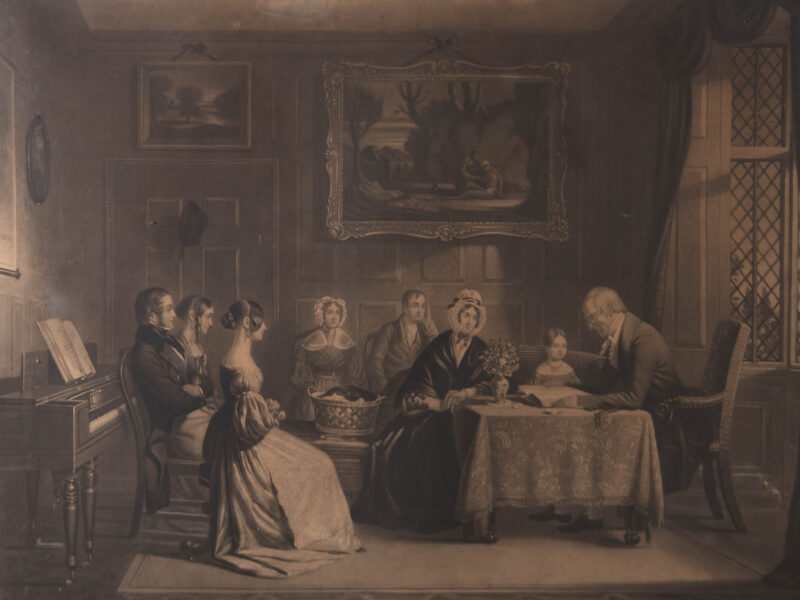Covid-19 has sent all of society into crisis mode, but the church has felt most acutely the effects of the pandemic. Worship services have been cancelled, hospital visitation curtailed or eliminated, and bible studies have been put on hiatus. Clergy, not knowing the right response, have sought to care for souls in the most readily available fashion: through the internet. This has its advantages, to be sure. Livestreaming worship services not only grants parishioners access to the continued edification of worship and the preaching of the gospel, but also has the added benefit of engaging the unchurched and the curious outsider as well.
A strange phenomenon has accompanied this move to “online worship,” however. Not only have liturgy and preaching been livestreamed, but so also has the Lord’s Supper––at least in certain places. My own little Lutheran synod, the doctrinally “centrist” North American Lutheran Church (NALC), has been marked by a bit of a skirmish about what to do with the practice of “internet communion.” As I’ve seen it happen, online consecration involves the pastor saying the words of institution into the camera, and the people on the other end consuming bread and wine (or grape juice) brought into some proximity to their computers.
What’s especially strange about this is that those who have opted to make a practice out of digital consecrations are often those most suspicious of “magical” or “sacerdotal” views on ordained ministry. Yet it is hard to imagine something quite so superstitious as the idea of someone bringing sacramental elements close to a computer so that a pastor might speak the Lord’s words through the mediation of the internet to consecrate them.
While it would be wrong to speculate about the true beliefs of those who do this, the practice also seems to be common in those churches most hesitant to embrace the Lutheran liturgical and sacramental tradition. Such churches are the ones that have adopted contemporary worship, in many cases, and are also known for radically deemphasizing the confessional Lutheran teaching on the real presence of the body and blood of Christ in the bread and wine of the sacrament. It is an implicit teaching on paper more than it is a living confession, for many such Lutherans. Perhaps what the practice of digital consecration really betrays is the implicit anti-sacramentalism that has haunted Lutheran churches in the U.S. for decades.
Moreover, little concern has been shown for the inter-congregational fellowship of churches in communion with one another. The attitude has been one of “mind your own business––you do it your way, I’ll do it mine.” This hardly displays much concern for the old Lutheran notion of having a “synod” where congregations and pastors “walk together” in doctrine and practice.
Historic Lutheran teaching is clear that the means of grace in word and sacrament are delimited by the scriptural institution of Christ. The old “nihil rule” of the Formula of Concord (1577), one of the principal Lutheran confessional documents, is clear that there is no sacrament outside its use. The “use” of the sacrament, in this case, is determined by the Lord’s own institution. Therefore, the rule could be extended such that drastic innovations surrounding the consecration and distribution of the Supper are ruled out before they can even be proposed, since doing so would involve speculation outside the clear words of Christ.
Since the means of grace were instituted for the comfort of Christians and the care of souls, novel and innovative practices must be treated cautiously for the sake of the confidence and assurance of believers. Had the apostles thought the church needed more information about baptism and the Lord’s Supper than what they do record in the sacred scriptures, surely they would have done so. But Lutherans have historically recognized the Holy Spirit’s great wisdom in providing the most simple and succinct of teachings on these two central means of grace. The practice of online consecrations goes beyond the clear institution of Christ and inserts worrying speculation in its place.
There is another intriguing wrinkle to the story, however. As much as one might criticize the embrace of American evangelical piety and worship practice, the introduction of weekly communion is more a product of the modern liturgical movement and its influence on Lutheranism than anything else. Many Lutherans were inspired by the Second Vatican Council to engage in the renewal of worship in Lutheran churches. Part of that involved the restoration of the weekly celebration of the Eucharist like in the Lutheran churches of the eras of reform and post-Reformation orthodoxy. Certainly this was a great benefit of the liturgical movement, in spite of its ill-conceived rejection of other aspects of historic Lutheran liturgy.
Yet one wonders if the Lord’s Supper has become too routine in Lutheran churches. With the embrace of weekly communion, so also fell away the practice of a declaration of intent to commune––a vestige of the older practice of private confession and absolution prior to receiving the sacrament. Almost all semblance of pastoral care for those who approach the altar has been discarded in favor of limp-wristed welcome to all those who care to commune. At best one finds a bulletin statement outlining the rules for admission to the altar. At worst, like in large swaths of the Evangelical Lutheran Church in America, an unconditional welcome is extended to anyone––no matter whether they’ve been baptized or how they’re disposed to the Lord who gives his body and blood in his Supper.
Has an attitude of consumerist entitlement, more than simple and penitent faith in Christ, come to characterize Lutheran attitudes toward the blessed sacrament? Perhaps this entitlement is to blame for the recent move to consecrate the elements by means of the internet. Whatever constellation of factors are responsible, the phenomenon of digital communion is deeply troubling for those seeking to uphold the truth of scripture as witnessed to in the Lutheran Confessions, the heritage of historic Lutheranism, and the broader catholic tradition to which we belong.





'Online Communion: A Lutheran Perspective' have 2 comments
July 8, 2020 @ 5:31 pm Aaron
Wonderful article John. Near the end however, you remarked that perhaps our move to weekly communion has decreased our respect for the sacrament. While this is true, my concern is the implication of such thought.
Surely you would not suggest that we should offer the Eucharist less often simply to regain an older sense of piety? As much as the Eucharist should be respected, it should be seen as the ‘medicine of immortality’, if anything it should be offered more often — not less.
In the old days of Dead Orthodoxy, the Eucharist was offered every Lord’s Day (and Feast), as we confess in the Book of Concord; that was static, what was contingent was whether or not the laity participated that day.
Rather than taking the Eucharist away to make it “more special“, we need to re-institute the practice of private confession and guarding the rail to ensure that those who have not privately confessed and been absolved are not being communed – yet it still being made available for those who have confessed. In this sense, intermittency should be within the laity and not within the mass itself.
July 14, 2020 @ 10:59 am John Hoyum
Aaron,
Many thanks for reading and also for your reply.
I’m not criticizing the practice of weekly communion per se, but I am trying to signal that the specific way in which weekly communion has been reintroduced has its downsides. However much one might appreciate the modern liturgical movement for its restoration of this practice, it seems to me that its juxtaposition of “penitential” versus “celebratory” “pieties” (thinking of Pannenberg here) has allowed for the reintroduction of weekly communion without the pastoral care for communicants that this requires – not least by our confessions. Though frequent private confession has been recommended by the liturgical renewal itself, it has come under the category of “reconciliation” prior to the Eucharist, which to me downgrades the practice of private confession and absolution to the status of a ritual pass-through instead of the actual impartation of a promise to the sinner. Moderns, like anyone, dislike hearing that they have sins to be forgiven, and so the pastoral care for those who commune has been discarded in the interest of convenience, welcome, and accommodation. An ecclesiology of church-as-culture – with its rites and rituals like any other community – has come to replace an ecclesiology of the church and the ministry as that way in the world in which we might obtain justifying faith and be confirmed in the same (AC V). It’s at this point, with a kind of reduction of the church to a ritually constituted culture, that I think the accommodation to some of the bad habits of a society like our own comes into view – and thus we can see how liturgical renewal has inadequately challenged the consumptive and entitled disposition of a broader culture that views the church as yet one more product on the market.
I also think that the denigration of the pietistic turn in Lutheran churches toward infrequent communion does not reckon with the complexity and actual richness of worship in the churches that had, thanks be to God, survived the onslaught of rationalism and liberalism. I’ve been greatly influenced by the research of Oliver K. Olson, Walter Sundberg, and Todd Nichol in this regard, who I think have made the case that we denigrate the immigrant faith of those Lutherans who made their way to America at our peril.
All this being said: I support weekly communion. But I am curious about how this has also been costly to the church in ways not appreciated often enough.